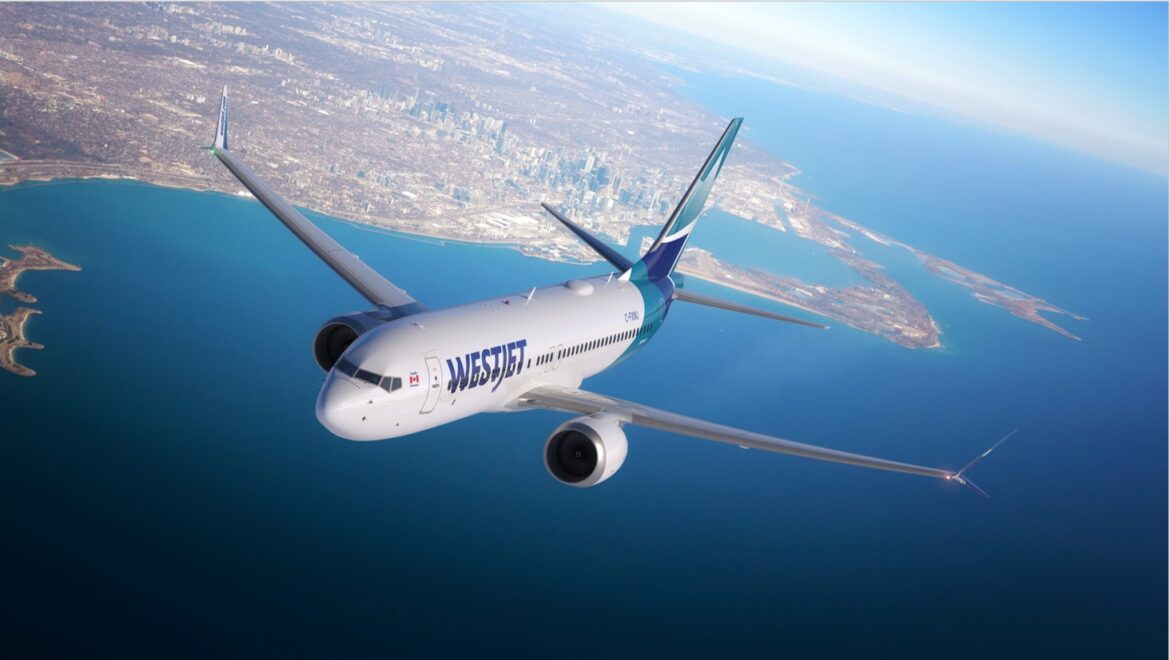Points Miles and Bling (blog) contains referral or affiliate links. The blog receives a small commission at no additional cost to you. Thank you for your continued support. Credit Card issuers are not responsible for maintaining or monitoring the accuracy of information on this website. For full details, current product information, and Terms and Conditions, click the link included.
In a significant move for the North American aviation landscape, WestJet has announced that Delta Air Lines and Korean Air will acquire minority equity stakes totalling 25% in WestJet. The investment, valued at approximately US$550 million, will be made independently by the two carriers from Onex Partners and co-investors (current owners of WestJet). Delta will acquire a 15% stake for US$330 million, while Korean Air will invest US$220 million for a 10% stake. WestJet also shared that upon closing, Delta intends to sell and transfer a 2.3% stake in WestJet to its Joint Venture partner Air France-KLM, also an existing WestJet partner, in exchange for US$50 million.
Impact on pricing and consumers
As one of the world’s most influential airlines, Delta’s entry into WestJet’s ownership structure could significantly impact the Canadian carrier’s strategic direction. While the deal explicitly maintains Onex’s control over WestJet, Delta’s financial stake means it will likely have a say in strategic decisions, particularly in areas aligning with its network goals.
One of the most pressing concerns is how this acquisition might influence pricing on routes where Delta and WestJet have overlapping interests. Historically, consolidation within the airline industry has led to increased fares and reduced competition. If Delta and WestJet coordinate their schedules and pricing on popular transborder routes, the risk of monopolistic pricing practices becomes more likely.
Delta’s influence may steer WestJet towards deeper integration with Delta’s extensive U.S. network, potentially altering WestJet’s independent operational strategy. Moreover, Delta’s existing partnerships with Air France-KLM and other SkyTeam members further complicate the landscape. If Air France-KLM finalizes its purchase of a 2.3% stake from Delta, this could strengthen the transatlantic network and limit competition on certain routes between Canada and Europe.
Delta’s pattern of acquiring stakes in international airlines suggests that this move could be a precursor to a more comprehensive partnership or even deeper ownership. With its stakes in Aeromexico, Virgin Atlantic, and China Eastern, Delta strategically positions itself to maintain influence in key global regions. For WestJet, this partnership could begin a broader integration into the SkyTeam alliance, particularly if Air France-KLM solidifies its stake.
While this minority stake could offer customers a more consistent travel experience between the two carriers, it might also reduce WestJet’s flexibility to pursue independent initiatives that may not align with Delta’s global strategy. On the other hand, WestJet’s enhanced ability to compete with Air Canada and other competitors in North America and future international routes may be good for consumers overall.
Takeaway
As Delta strengthens its presence in Canada through this stake, regulatory bodies will scrutinize this acquisition to ensure consumers do not face reduced options or inflated fares on these key routes and how this impacts the Canadian airline landscape.
The strategic logic is sound from a business perspective – WestJet aims to bolster connectivity between Canada, North America, Europe, and Asia, but balancing corporate expansion with maintaining consumer choice and competitive fares is essential. Only time will tell whether this partnership will truly benefit Canadian travellers or inadvertently limit their options.
Featured Image Credit: WestJet

2 comments
On the other hand, if DL could improve WS’s customer service, ontime reliability, and IRROP recovery, that would be great. Not going to hold my breath though
I hope that is the case. Don’t fly either of them enough to have an opinion on their customer service standards.